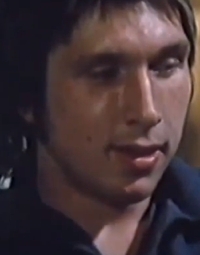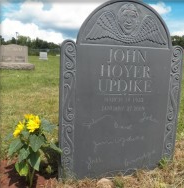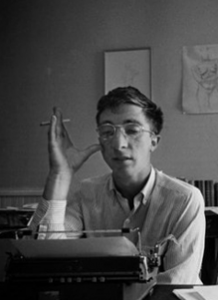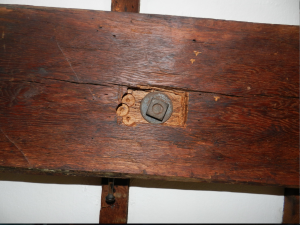 The John Updike Childhood Home is still being renovated, but the annex built by Dr. Hunter—who lived in the house after the Updikes left and needed additional space for his practice—is being rented as of July 1 to a tenant who grew up in the neighborhood, knew John Updike, and counts Updike’s father, Wesley, among his mentors.
The John Updike Childhood Home is still being renovated, but the annex built by Dr. Hunter—who lived in the house after the Updikes left and needed additional space for his practice—is being rented as of July 1 to a tenant who grew up in the neighborhood, knew John Updike, and counts Updike’s father, Wesley, among his mentors.
The Borough of Shillington has approved David W. Ruoff Financial Services as a tenant in the annex of The John Updike Childhood Home, in effect establishing an onsite presence and giving the society a small rental income that will go toward monthly utilities, fees, and taxes.
The society reconfigured the annex space so that the former doctor’s waiting room will serve as the museum’s education room, with chairs lined up so groups of 24 or so can listen to speakers, or, thanks to a donation from Bruce Moyer, watch Updike-related videos on a TV monitor. The former doctor’s office has been turned into a museum gift shop, while a bathroom will be shared by the museum and the tenant, who will occupy the rooms that Dr. Hunter used for his examinations. One of those rooms even has an x-ray light that’s still operational.
Both the society board and the tenant are excited about the new arrangement.
“I consider it a privilege to occupy that space which is 1/2 block from where I was raised in Shillington, Pa.,” Ruoff said. “I knew John in his youth, but I knew his father Wesley Updike a lot better. As you know, his father was a math teacher in the Shillington High School for many years. I consider him one of my mentors during my childhood.
 Ruoff said Wesley Updike “would throw snowballs at a blackboard to start showing us how to use the decimal system: ‘Numbers to the right are smaller, numbers to the left are bigger—you get that David?’
Ruoff said Wesley Updike “would throw snowballs at a blackboard to start showing us how to use the decimal system: ‘Numbers to the right are smaller, numbers to the left are bigger—you get that David?’
“My mother was born 99 years ago on Philadelphia Ave. Then my grandfather moved the family up to Fourth Street, which is right next to the Jewish cemetery overlooking Shillington and Reading. The family would delight in seeing my grandfather coming from Reading on Lancaster Ave. (now 222) and they had no trouble identifying him because he had the only car in Shillington at that time. He sold spices to hotels, etc., and it was actually a company car”—a 1910 Maxwell.
Ruoff said that “John Updike gave a lot of people around here paranoia—drove everybody crazy figuring out who was who [in the fiction].”
Ruoff, who started his life insurance agency in 1967 and financial service organization in 1974, has joined The John Updike Society and looks forward to sharing stories with members.






